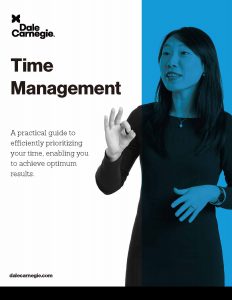Time Management: A Practical Guide To Efficiently Prioritizing Your Time
How to Prioritize and Maximize Results
❓ Why is time management the scarcest resource for managers?

Peter Drucker famously said: “Time is the scarcest resource of managers. If it is not managed, nothing else can be managed.” In today’s fast-paced world, managing time effectively is not optional — it’s essential for achieving results without compromise.
Key Principles for Effective Time Management
- Record planned activities daily or weekly to stay on track
- Define primary goals to clarify priorities
- Apply the 80/20 Rule: focus on the 20% of tasks that deliver 80% of results
- Distinguish between important vs. urgent tasks
- Rank tasks using the ABC system (A = must-do, B = should-do, C = optional)
- Create realistic schedules with deadlines and time estimates
- Re-evaluate goals and adjust plans regularly
- Purge low-value tasks that will never realistically be completed
FAQ
Q1. How can I decide what to prioritize first?
A1. Use the ABC ranking system: start with “A” tasks that are both urgent and important.
Q2. What if everything feels urgent?
A2. Step back and analyze the impact. Urgent tasks may scream for attention, but important tasks build long-term success.
Q3. Can I multitask effectively?
A3. Yes — if you combine low-priority tasks with higher ones (e.g., listening to training audio while commuting).
👉 By focusing on the essentials and eliminating waste, you can consistently achieve optimum results, both professionally and personally.
Time management isn’t just about working harder; it’s about working smarter. Start by recording all your activities, then map them to your primary goals. Consider Pareto’s 80/20 principle to identify high-impact work.
When deciding what to tackle first, always separate what is urgent (deadlines, emergencies) frtant (strategic progress, growth). Tools like the Eisenhower Matrix or the ABC ranking system help clarify decisions.
Building a schedule ensures tasks have a timeline and structure. Flexibility is equally important — reevaluate goals weekly,om what is impor and adjust. Finally, don’t be afraid to purge. Some “C” tasks will never add value, and letting them go frees up energy for what matters most.
Time is finite. Those who master it gain a competitive edge in leadership, career, and life.


